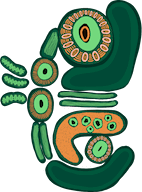
What to do if you need Emergency dental care
With the holiday season upon us, we want to ensure you know what to do if the unexpected happens and you have a dental emergency. Dental emergencies can happen at the most inconvenient times and often can’t wait until a more suitable appointment time.
When is it time to make an emergency appointment?
Sometimes it’s very clear what constitutes a dental emergency, but it can also be difficult to know when to make an emergency appointment. Everyone has their own tolerance for pain and discomfort. However, you will need to see a dentist if you have any of the following symptoms:
- Any significant pain, swelling or uncontrolled bleeding.
- A tooth infection or abscess. Sometimes an unpleasant taste in the mouth or pus can be present.
- An ulcer which won’t heal or a sore on your tongue, gum or cheek.
- A broken or fractured tooth including dental trauma e.g. a tooth which has been knocked out.
Tips to help avoid a dental emergency
- Take care of your teeth and gums, no matter what the time of year. We all tend to relax our usual behaviours and routines over the summer holidays, but this doesn’t mean we should forget the dental essentials.
- Use scissors and not your teeth to open packages. You may be in a hurry to open that Christmas gift but take your time and enjoy the anticipation. Your teeth will thank you!
- Avoid chewing on ice and hard foods which could cause your teeth to crack. Popcorn kernels, pork crackling, bones, olive pips and hard chewy lollies are all common tooth trauma culprits.
- Wear a mouthguard if you play a contact sport or if you have been told that you clench or grind your teeth.
- Monitor your intake of sweet, sugary foods, and stay well hydrated, over the summer months.
- Maintain your usual routine of brushing at least twice each day and flossing every day.
- Get any existing problems or concerns with your teeth or gums fixed before they become a much bigger problem or at worst, an emergency.
What to do if you find yourself in a dental emergency
It is important to stay calm and not panic. Call your dentist as soon as possible. If a tooth has been knocked out, try placing it gently back into the socket. Hold it by the crown, not the roots and make sure it’s in the right way around. If the tooth is dirty, rinse it in milk before placing it back into the socket. If you can’t put it back, store it in milk or place the tooth between your cheek and gums to keep it moist until you can get to the dentist. (Note: If a baby tooth is knocked out from your child’s mouth, call your dentist before attempting to replace it).
If you have a toothache, avoid chewing on the tooth as well as hot, cold or sweet food and drink if that is making the toothache worse. You can take over the counter pain medication as directed by your pharmacist to control the pain whilst you are waiting to be seen by your dentist.
If you notice a swelling on the cheeks that is enlarging, beginning to close the eye, or tracking down the side of your neck, you should urgently contact your local emergency department. Any rapidly uncontrolled swelling associated with an abscessed tooth will need medical attention as soon as possible.
Please call your nib Dental Centre or Book an appointment online as soon as possible with your dentist. We are open over the festive break to support you with your dental needs, whatever they may be.
When should I make an emergency appointment?
Make an appointment to be seen by a dentist as soon as possible by either calling direct or online. Early assessment and treatment of dental emergencies can make a significant difference towards a positive outcome.
References
https://www.pacificsmilesdental.com.au/news/covid-19-safety-your-appointment/
https://www.pacificsmilesdental.com.au/news/how-to-deal-with-dental-emergencies-over-the-holiday-season/
https://www.pacificsmilesdental.com.au/news/what-do-i-do-when-my-tooth-is-knocked-out/
https://www.pacificsmilesdental.com.au/news/what-to-expect-during-an-emergency-dental-appointment/
